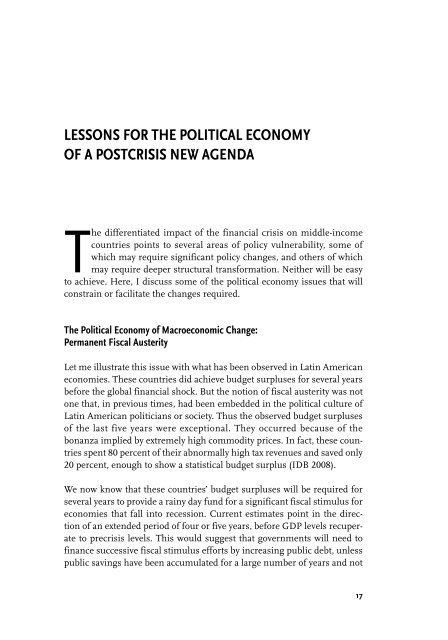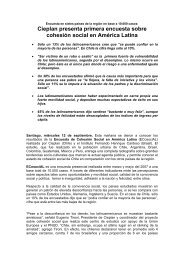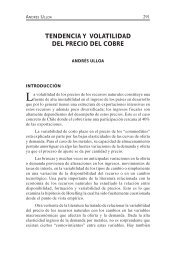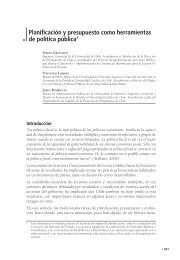Recovery: The Global Financial Crisis and Middle-Income Countries
Recovery: The Global Financial Crisis and Middle-Income Countries
Recovery: The Global Financial Crisis and Middle-Income Countries
Create successful ePaper yourself
Turn your PDF publications into a flip-book with our unique Google optimized e-Paper software.
LESSONS FOR THE POLITICAL ECONOMYOF A POSTCRISIS NEW AGENDA<strong>The</strong> differentiated impact of the financial crisis on middle- incomecountries points to several areas of policy vulnerability, some ofwhich may require significant policy changes, <strong>and</strong> others of whichmay require deeper structural transformation. Neither will be easyto achieve. Here, I discuss some of the political economy issues that willconstrain or facilitate the changes required.<strong>The</strong> Political Economy of Macroeconomic Change:Permanent Fiscal AusterityLet me illustrate this issue with what has been observed in Latin Americaneconomies. <strong>The</strong>se countries did achieve budget surpluses for several yearsbefore the global financial shock. But the notion of fiscal austerity was notone that, in previous times, had been embedded in the political culture ofLatin American politicians or society. Thus the observed budget surplusesof the last five years were exceptional. <strong>The</strong>y occurred because of thebonanza implied by extremely high commodity prices. In fact, these countriesspent 80 percent of their abnormally high tax revenues <strong>and</strong> saved only20 percent, enough to show a statistical budget surplus (IDB 2008).We now know that these countries’ budget surpluses will be required forseveral years to provide a rainy day fund for a significant fiscal stimulus foreconomies that fall into recession. Current estimates point in the directionof an extended period of four or five years, before GDP levels recuperateto precrisis levels. This would suggest that governments will need tofinance successive fiscal stimulus efforts by increasing public debt, unlesspublic savings have been accumulated for a large number of years <strong>and</strong> not17












